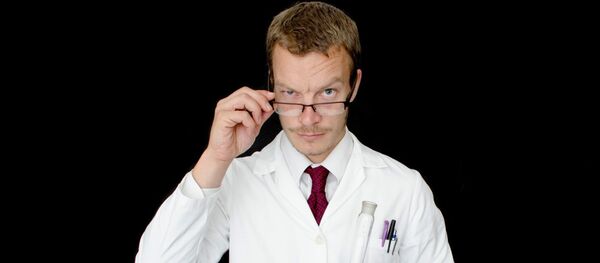Antibiotics were invented by Alexander Fleming in the 1920s and were initially seen as a miracle cure against infections. Over the decades, however, their overuse has led to the emergence of so-called "multi-resistant" bacteria, which may endanger the future of humanity.
Today, 70 Europeans die from infections caused by resistant bacteria each day. In Southern Asia, resistant bacteria kill one child every two minutes. Thirty years from now, resistant bacteria can become the world's most common cause of death, surpassing cancer, cholera, diabetes, measles, tetanus, diarrhea and traffic accidents combined.
For or Against?
"Antibiotic resistance has increased to a degree that we are actually losing antibiotics," Anu Kantele, a professor of infectious diseases at the University of Helsinki told Finnish national broadcaster Yle.
If man were to lose the fight for antibiotics, it would have fatal consequences, Kantele argued.
"If we lose this fight, it means that people will die of, say, lung infection or once they get bacteria in the blood. Small wound infections will thus also lead to death, cancer treatment will be rendered impossible, as will be many surgical procedures with a risk of infection," Kantele explained, warning of big and expensive changes.
In addition to research, education and raising awareness, one of the feasible ways of prolonging the magical power of antibiotics is actually to avoid their unnecessary consumption. Kantele argued that Finland ranks among the best nations in the world regarding the spread of resistant bacteria, yet pointed out that about half of all antibiotics in the Nordic nation are consumed totally unnecessarily.
A1: #AntibioticResistance is when bacteria develop the ability to defeat drugs designed to kill them. #IIPWChat pic.twitter.com/y0iUZ2DKgc
— CDC NCEZID (@CDC_NCEZID) October 17, 2017
For instance, upper respiratory tract infections are often caused by viruses, which are not affected by antibiotics. The same goes for the so-called "traveller's diarrhea," which often gets its victims to reach for an "overkill" solution. Kantele pointed out that nor should elderly people with bacteria in the urinary tract be treated with such powerful medicine unless they exhibit any symptoms.
"People should go to a doctor when they are ill, but if the doctor says no, no antibiotics are needed, you have to deal with it," Kantele said.
Earlier this week, Finland and Sweden together with Denmark, Austria and the Netherlands signed a letter calling on fellow EU nations to introduce tougher rules for the use of antibiotics to prevent antibiotic resistance, the Swedish newspaper Dagens Medicin wrote.
"I hope that we can take this important step together with other EU member states. Antibiotics are a vital resource which we must use responsibly," Swedish Rural Affairs Minister Sven-Erik Bucht said.
Earlier this month, researchers at Uppsala University, Sweden developed a method for quickly detecting resistant bacteria. The new method takes between 10 minutes and half an hour, as opposed to two days with conventional methods. The idea is to facilitate the prescription of the right kind of treatment from the outset of a disease, so that no antibiotics are prescribed unnecessarily.




